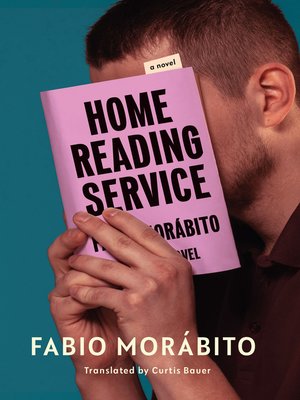
Sign up to save your library
With an OverDrive account, you can save your favorite libraries for at-a-glance information about availability. Find out more about OverDrive accounts.
Find this title in Libby, the library reading app by OverDrive.



Search for a digital library with this title
Title found at these libraries:
| Library Name | Distance |
|---|---|
| Loading... |
In this poignant novel, a man guilty of a minor offense finds purpose unexpectedly by way of his punishment—reading to others.
After an accident—or “the misfortune,” as his cancer-ridden father’s caretaker, Celeste, calls it—Eduardo is sentenced to a year of community service reading to the elderly and disabled. Stripped of his driver’s license and feeling impotent as he nears thirty-five, he leads a dull, lonely life, chatting occasionally with the waitresses of a local restaurant or walking the streets of Cuernavaca. Once a quiet town known for its lush gardens and swimming pools, the “City of Eternal Spring” is now plagued by robberies, kidnappings, and the other myriad forms of violence bred by drug trafficking.
At first, Eduardo seems unable to connect. He movingly reads the words of Dostoyevsky, Henry James, Daphne du Maurier, and more, but doesn’t truly understand them. His eccentric listeners—including two brothers, one mute, who moves his lips while the other acts as ventriloquist; deaf parents raising children they don’t know are hearing; and a beautiful, wheelchair-bound mezzo soprano—sense his detachment. Then Eduardo comes across a poem his father had copied by the Mexican poet Isabel Fraire, and it affects him as no literature has before.
Through these fascinating characters, like the practical, quick-witted Celeste, who intuitively grasps poetry even though she never learned to read, Fabio Morábito shows how art can help us rediscover meaning in a corrupt, unequal society.
After an accident—or “the misfortune,” as his cancer-ridden father’s caretaker, Celeste, calls it—Eduardo is sentenced to a year of community service reading to the elderly and disabled. Stripped of his driver’s license and feeling impotent as he nears thirty-five, he leads a dull, lonely life, chatting occasionally with the waitresses of a local restaurant or walking the streets of Cuernavaca. Once a quiet town known for its lush gardens and swimming pools, the “City of Eternal Spring” is now plagued by robberies, kidnappings, and the other myriad forms of violence bred by drug trafficking.
At first, Eduardo seems unable to connect. He movingly reads the words of Dostoyevsky, Henry James, Daphne du Maurier, and more, but doesn’t truly understand them. His eccentric listeners—including two brothers, one mute, who moves his lips while the other acts as ventriloquist; deaf parents raising children they don’t know are hearing; and a beautiful, wheelchair-bound mezzo soprano—sense his detachment. Then Eduardo comes across a poem his father had copied by the Mexican poet Isabel Fraire, and it affects him as no literature has before.
Through these fascinating characters, like the practical, quick-witted Celeste, who intuitively grasps poetry even though she never learned to read, Fabio Morábito shows how art can help us rediscover meaning in a corrupt, unequal society.







